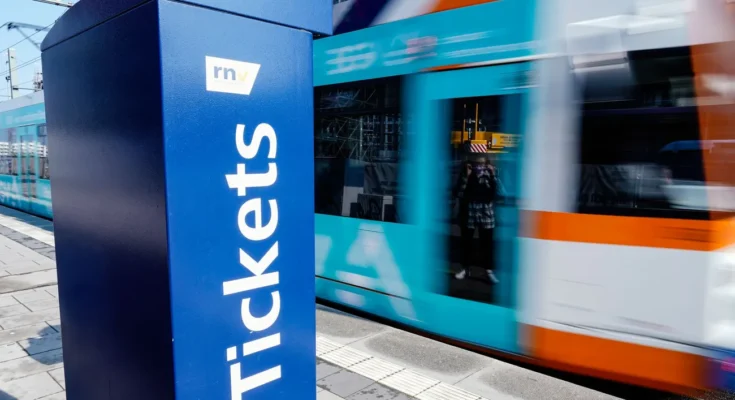Debates over “benefits fraud” are common – usually accompanied by calls for fare evasion to be downgraded to a misdemeanor. Because: Anyone who travels by bus or train without a valid ticket is committing a criminal act crime – and risk a fine or prison sentence of up to one year.
Many consider this to be excessive. The “traffic light” government wanted to classify fare evasion as an administrative offense, but planned reforms failed. However, on closer examination, it appears that there are good reasons to maintain this criminal status.
Less confidence
Criminal prosecution statistics in recent years show that this problem has not yet been resolved, at least in the southwest region. The number of convictions has recently decreased significantly – in 2021 there were 7,019 cases, in 2022 the number fell to 5,126 and in 2023 to 4,100. This provides the answer Ministry of Justice in response to a question from non-attached MP Daniel Born. However, the reasons for the decline are still unclear. The ministry could not say to what extent the developments were related to German support. There are no latest figures yet.
According to the letter, imprisonment plays only a minor role in practice; most cases end in fines. In 2023 there were about 60 prison sentences compared to 3,965 fines. Courts only impose prison sentences if fines are not consistently paid.
Judicial assistance?
Critics argue that downgrading to a misdemeanor would ease the burden on the judiciary – Baden-Württemberg’s Justice Ministry sees it differently. Administrative authorities will initially be responsible, but any objection to the fine will send the case back to the public prosecutor and the court. In addition, administrative violation cases in district courts have a shorter processing time compared to criminal cases. This could even be an additional burden for public prosecutors and higher courts if there are legal complaints.
Ultimately, the expected judicial leniency is not an argument for decriminalization, wrote Minister Marion Gentges in a 2022 opinion piece: “This approach paves the way for a justice system that no longer asks what is legally required, but is based on what we should be able to afford.”
Prison is not immediately avoided
From the start of 2021 to September 2025, 1,218 people in Baden-Württemberg were behind bars solely for fare evasion, according to the Ministry of Justice. This comes at a cost: detention costs in Baden-Württemberg are around 200 euros per day. Proponents of decriminalization argue that no one should go to prison for fare evasion. Left-wing groups criticize that poor or homeless people who cannot afford tickets are often punished.
However: You could also end up behind bars for unpaid fines. However, mandatory prison sentences, which would replace prison sentences, do not waive fines – so those affected will have to continue paying fines despite being imprisoned. According to the ministry, the system of mandatory fines and detention is even more inflexible than criminal law: fines can be converted into community service, but fines cannot be processed. There is also no educational element as in juvenile criminal law or the possibility of recruitment under certain conditions.
The ministry also stated that effective programs are in place to avoid alternative prison sentences. Projects such as “sweating rather than sitting” or personal advice on solvency will help prevent prison sentences and make fines affordable. These measures have proven successful in Baden-Württemberg – and would be difficult or impossible to implement in administrative offenses law.
Public loss
The fight against tariff avoidance also aims to protect the public good. According to Minister Gentges, fare evasion is not a trivial offense, but rather places a financial burden on local and long-distance transport which is already under pressure.
A downgrade to an administrative offense would place responsibility on the city government. Because the loss of income reaches millions. And the fines office must also carry out the process. Transport companies and district councils have stressed in the past that they expect fare evasion rates to increase if they do not advertise. The lost revenue must be paid for by the general public – through higher ticket prices or through the city budget.
© dpa-infocom, dpa:251116-930-298444/1


